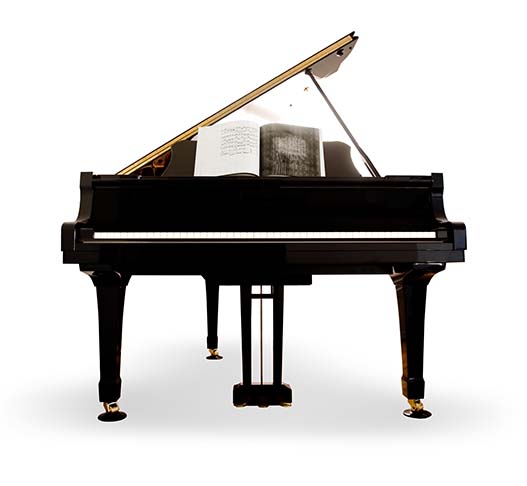[twocol_one]
How Often Should My Piano Be Tuned?
Piano Manufacturers recommend tuning your piano two to four times a year. Twice a year is the optimal minimum for keeping your piano in excellent tune all year long.
What Causes My Piano To Go Out Of Tune?
In New England, the weather can change from a bright sunny day to a drenching torrent of rain in a matter of minutes which causes a sudden relative humidity jump and a headache for farmers trying to get their hay in. But the biggest factor is the change from the dry winter months to the humid summer months. Relative humidity (RH) can range from 20% in the winter and as much as 95% in a summer afternoon thunderstorm. Because the soundboard is made of wood and covers a great deal of the piano, it swells and shrinks as the humidity increases or decreases which in turn causes the piano to go out of tune.
Will extreme humidity changes harm my piano?
The short answer is, yes. Here’s the long answer: The piano, being made of wood draws in moisture or releases moisture based on the ambient relative humidity of the atmosphere. Let’s take the soundboard for example. When it gets too saturated, and swells too much the wood cells start to be crushed as they are forced to remain in the confined area. Then when the soundboard dries out in the winter, very tiny cracks start to form as it shrinks. Of course if it gets too dry, wood naturally cracks without the fibers being crushed. As you can see, extreme humidity causes harmful results on either end of the spectrum.
[/twocol_one]
[twocol_one_last]
Is there a way to minimize the effects of humidity on the piano?
Yes. There are a number of ways to decrease your humidity problems.
- Try to keep your piano as far away from your heat source as possible.
- Keep a piano out of humid or wet basements.
- If you already have a humidifier, try to keep the relative humidity as close to 42% RH as possible
- The same goes for a dehumidifier which is mostly used in the summer or in basements.
- The most effective (including cost) is to have a Registered Piano Technician install a Piano Lifesaver System inside your piano. Yes, inside. These run quietly and effectively year round and automatically adjust for proper humidity in the piano.
[/twocol_one_last]
What is regulation?
Regulation is making all the parts in the piano work at their optimum capacity. In other words making a piano as easy to play and uniform in feel as possible. There are a number of adjustments involved (one method includes 37 steps!) including key height, hammer distance from the string, and the exact timing of the dampers lifting off the strings. You could compare this to a car tune-up…making sure all the parts work like they should for optimum performance.
